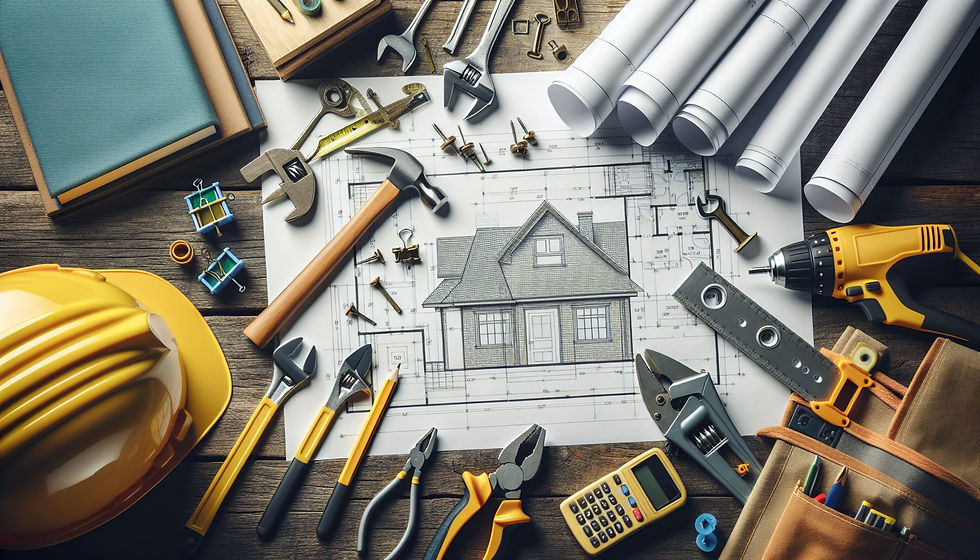A Complete Guide to Constructing a New Home in Denmark
- Vincent Deschamps

- Aug 30, 2024
- 2 min read
Building a New House in Denmark: A Comprehensive Guide

Denmark, with its eco-friendly policies and innovative construction solutions, has become a popular destination for residential projects. This comprehensive guide sheds light on important details you need to understand when building a new house in Denmark, the varying factors involved, and the potential tradeoffs and challenges likely to come your way.
Understanding Danish Building Regulations
Before you start, get acquainted with the Danish Building Regulations (BR18). These regulations dictate energy efficiency, accessibility, safety, and other essential factors. They are regularly updated, so staying informed ensures your project adheres to the latest standards.
Decide on the Type of House
Deciding on the type of house is crucial. Whether it's a traditional Danish house, eco-friendly home, or a modular house, each comes with its own set of guidelines, advantages, and challenges. For instance, choosing to construct an environmentally friendly house might require specialized professionals who can implement sustainable practices during construction.

Choosing a Location
When considering locations, remember that Denmark is renowned for its high living standards and public amenities. Your choice will affect the house's price, commuting times, and access to schools or shopping centers. Therefore, prior research on the neighborhood's amenities, infrastructure, and distances to major cities will significantly impact your quality of life.
Working with a Project Builder
Project builders in Denmark often provide complete solutions, including design, compliance checks, and execution. They are often more budget-friendly and save you the trouble of handling multiple contractors. Ensure that your chosen project builder is credible and has a good track record with similar projects.
Cost Considerations
A significant portion of your budget will be dedicated to buying the land, paying for construction, and interior work. It is advisable to set aside 10-15% of your budget for unforeseen expenses, as construction projects often come with unpredictable costs.

Obtain Necessary Permits
Before construction begins, you'll need to apply for building permits. These may take considerable time to obtain, so factor this into your project schedule.
Inspection and Quality Assurance
Once building concludes, your house will need to pass an inspection. Danish Municipalities conduct these inspections as part of their commitment to ensuring quality, accessibility, and safety. This final step brings you closer to your dream house, so ensure that all aspects of construction abide by the rules laid out in BR18.
Ensuring a smooth, hassle-free house construction in Denmark needs a thorough understanding of the local regulations, in-depth planning, sufficient financial cover, and a reliable team. By considering the elements discussed in the guide, you will be ready to undertake a rewarding journey of constructing a new house in Denmark.
At Grannville Consulting, our expert consulting services can guide you through this complex process, ensuring your vision becomes a reality seamlessly. To know more about how we can assist your Danish housing journey, visit our services page here.
Warm Regards,
The Grannville Consulting Team




Comments